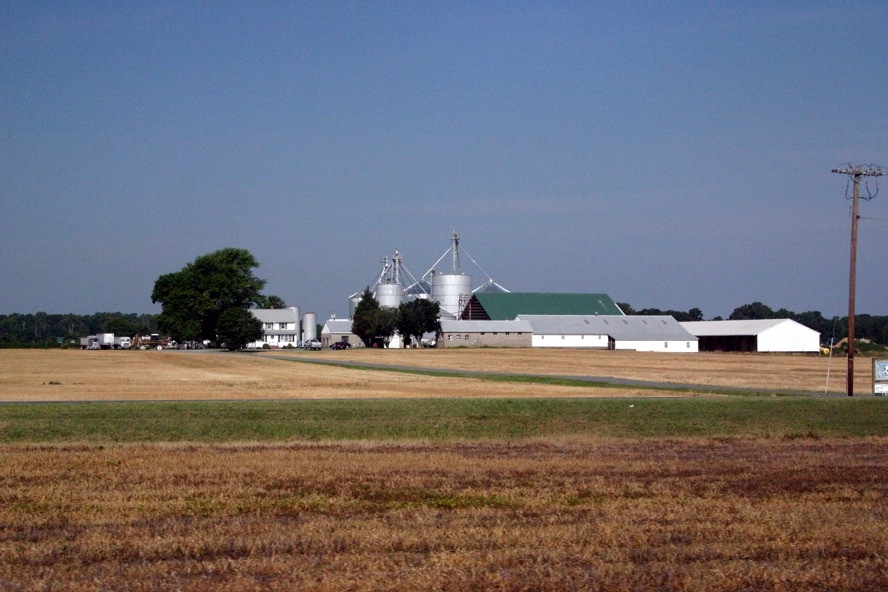Asha McElroy is a Master of Public Health student at The University of Michigan and summer intern with the HLS Food Law & Policy Clinic. She is a guest contributor on the blog.
The United States Department of Agriculture (USDA) National Institute of Food and Agriculture (NIFA) provides funding to land-grant universities teaching the next generation of leaders in agriculture, conducting research and engaging in extension outreach. A land-grant college or university is “an institution that was established by the state legislature or Congress to receive benefits under the Morrill Acts of 1862, 1890 and 1994” according to the Association of Public & Land-Grant Universities (APLU).
The original purpose of HBCUs (Historically Black Colleges and Universities) was to teach agriculture, military procedures, and, eventually, technical arts in addition to classical studies to students of color and members of the working class and help them obtain adequate educational opportunities. Funding distributed by NIFA is primarily directed to land-grant colleges and universities for the purposes of teaching, research, extension for agriculture and mechanical arts as an avenue to navigate post-secondary education. NIFA funding is distributed through both formula grants and competitive grants. Part of the allocated funding supports the Cooperative Extension System (CES) which bridges the gap between the community and university through practical education and scientific communication in collaboration with local agents at cooperative extension county offices.
Many HBCUs have agribusiness programs that train the next generation of agribusiness experts who will lead the future of the agri-food sector, rural and urban economies. This type of degree or educational program provides training in economics and business management principles related to production, distribution, marketing and consumption of agricultural goods and services. Among these programs, my alma mater, the illustrious North Carolina Agricultural and Technical State University (N.C. A & T SU), an HBCU located in Greensboro, NC, has a Bachelor of Science and a Master of Science in Agribusiness and Food Management program. In 2020-2021, N.C. A & T SU was ranked as the number one HBCU according to Money Magazine and the Washington Monthly.
On June 8, 2022, NIFA announced a $1.92 million dollar investment to establish an Agriculture Business Innovation Center at N.C. A & T SU, authorized via the FY 2021 Consolidated Appropriations Act, Section 766 (Public Law 116-260). The Agribusiness Center can serve as a blueprint for USDA to fund additional programs at HBCUs to train the next generation of leaders within agribusiness. The Center will serve agriculture-based businesses through technical assistance while expanding existing nationwide development opportunities including:
- Providing technical assistance to food and agricultural producers, offering production scale assessments, market planning and development, business planning and other advisory services
- Assisting startups in agribusiness including planning and obtaining funding
- Providing workforce development and educational experiences for students interested in careers in agriculture business
- Offering outreach services and activities such as training, workshops and dissemination of information and materials
Dr. Kenrett Jefferson-Moore, Professor and Department Chair of the Agribusiness, Applied Economics and Agriscience Education is “ecstatic to receive funding for the HBCU Agriculture Business Innovation Center (ABIC) at North Carolina A&T State University. Although we are the primary recipient of the USDA NIFA-supported initiative, the HBCU ABIC is a partnership between Alabama A&M University, Kentucky State University, and West Virginia State University. The collaborating institutions and a network of business, finance, and marketing organizations will work together to address the needs of socially disadvantaged farms, firms, and individuals with interests in agriculture and food systems across the U.S.”
The Agriculture Business Innovation Center is the first of its kind and it is housed in an HBCU. N.C. A & T SU has a history of receiving funding from nationally recognized organizations and federal agencies, although most public HBCUs are historically underfunded by the federal government. In 2021, NIFA awarded $2.3 million to N.C. A & T SU to establish the 1890 Center of Excellence for Student Success and Workforce Development. The center is an excellent model to connect other 1890 land-grant institutions in their development and sharing of information, educational materials, evaluation tools, data collection and reports shared in a password-protected environment. The 1890 Center of Excellence for Student Success and Workforce Development will, according to Dr. Kenrett Jefferson-Moore, “serve prospective individuals with the experiential training essential to establish economic independence through careers and/or enterprises in the agriculture and food systems.”
Increasing USDA NIFA funding allocated to 1890 land-grant institutions is an opportunity to advance racial justice. Between HBCUs and the CES, there are ample advancement opportunities for farmers and aspiring farmers and farm leaders to receive training and additional education in agribusiness. Additionally, as discussed in FBLE’s Farmworkers Report, HBCUs, as well as TCUs (Tribal Colleges and Universities) and HSIs (Hispanic Serving Institutions) could serve as leaders and collaborators of projects supporting farmworkers. Currently, there are not many NIFA grant opportunities to support farmworkers to expand their capacity based on their identified priorities and needs. To build on the recent funding developments discussed above, Congress could increase the administration of NIFA grants to other HBCUs to build farmworker capacity based on the farmworker-identified needs and priorities.
In conclusion, there is a legislative opportunity in the 2023 Farm Bill to increase USDA NIFA grants to 1890 land-grant institutions to fund the future of agribusiness through student enrichment which may directly impact the future of agriculture and farm work throughout the U.S.
The views and opinions expressed on the FBLE Blog are those of the authors and do not necessarily reflect the official policy or position of FBLE. While we review posts for accuracy, we cannot guarantee the reliability and completeness of any legal analysis presented; posts on this Blog do not constitute legal advice. If you discover an error, please reach out to contact@farmbilllaw.org.
Image source: Flickr, Barb Howe


